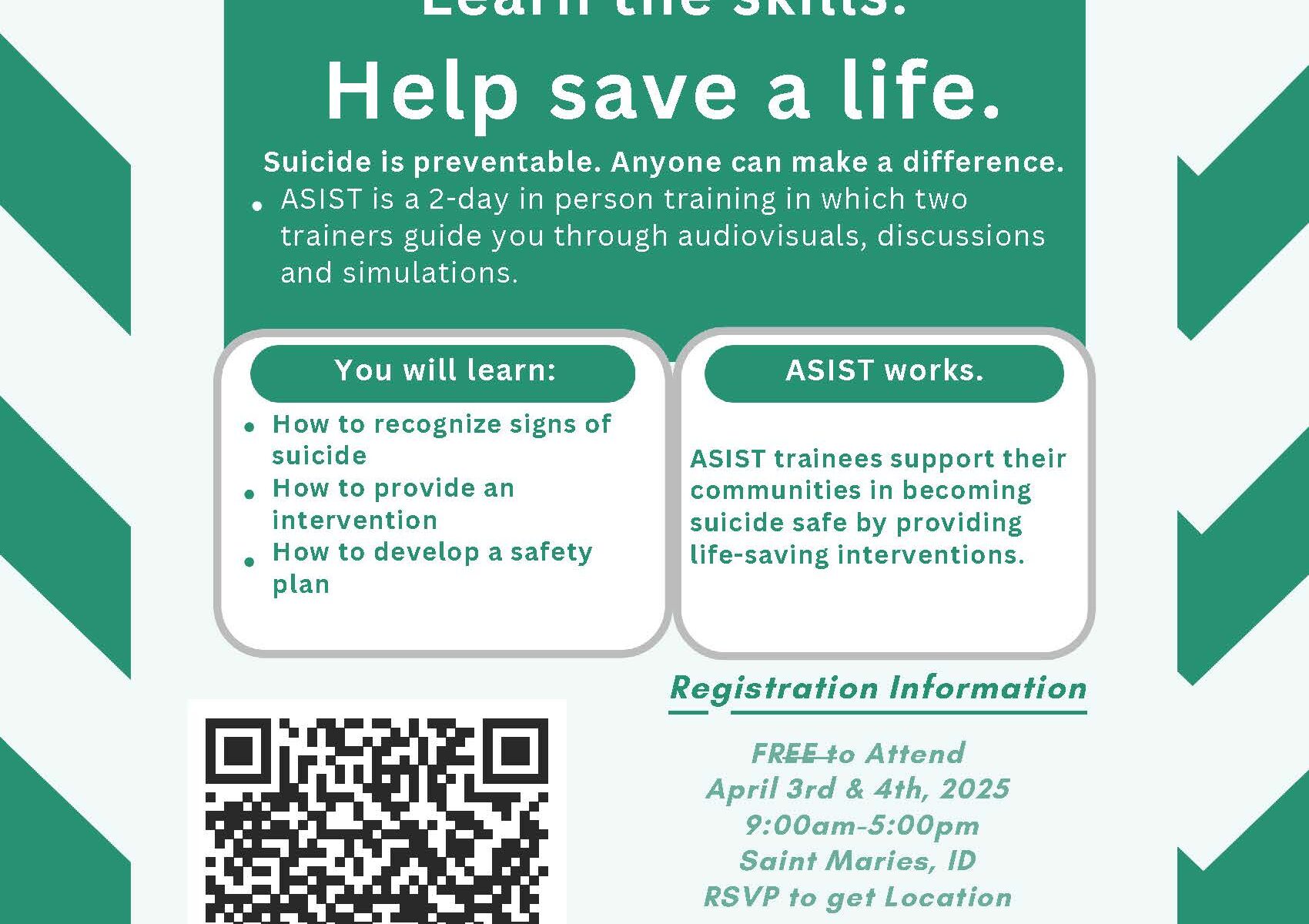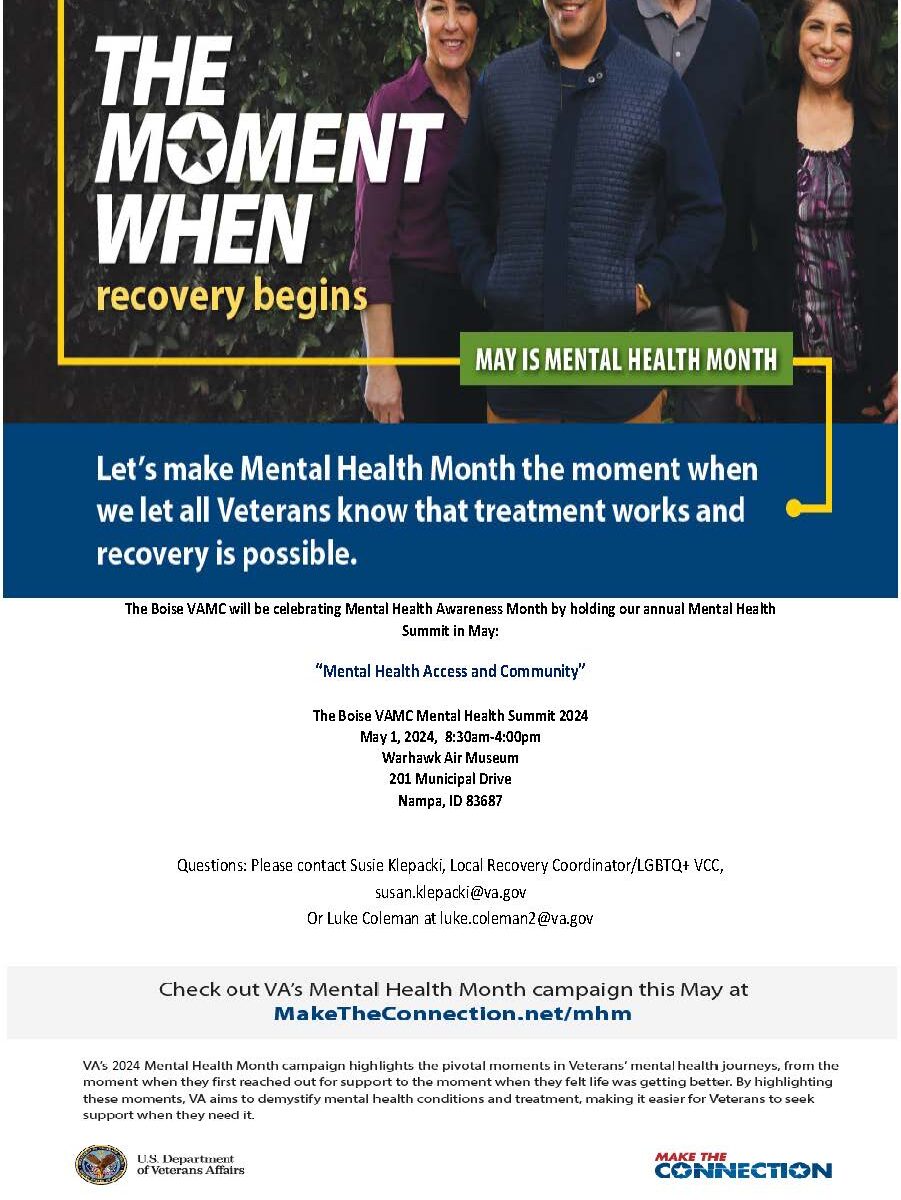Suicide is preventable. You can make a difference. If you want to be part of a life-saving initiative, the Applied Suicide Intervention Skills Training (ASIST) is an opportunity to learn how to recognize signs of suicide, provide interventions, and develop safety plans. This free, two-day in-person training will equip you with essential skills to support your community and prevent suicide.
Event Details
📅 Dates: April 3 & 4, 2025
🕘 Time: 9:00 AM – 5:00 PM
📍 Location: Saint Maries, ID (RSVP required for exact location)
🎟 Cost: Free to attend
👉 Secure your spot today and become a suicide prevention advocate!
What is ASIST?
ASIST is an interactive suicide intervention training designed to help participants:
- Recognize signs of suicide risk
- Learn how to conduct an intervention
- Develop and implement a safety plan
This training is guided by two experienced trainers using audiovisual presentations, group discussions, and realistic simulations to help participants develop hands-on skills. Upon completion, attendees will be equipped to support individuals in crisis and contribute to a suicide-safe community.
Who Should Attend?
This training is beneficial for anyone who wants to learn how to help prevent suicide, including:
- First responders
- Educators
- Healthcare professionals
- Community leaders
- Concerned friends and family members
No prior experience is required—anyone can learn to make a difference!
Why Attend?
✅ Earn LivingWorks Certification
✅ Receive Continuing Education Units (CEUs) (if applicable)
✅ Learn evidence-based intervention techniques
✅ Gain confidence in helping those in crisis
✅ Become a vital part of a suicide-safe community
🗣 Testimonial: “Attending ASIST training gave me the confidence to step in and help someone in crisis. The skills I learned are invaluable!” – Past Participant
How to Register
Secure your spot by registering through the link below or by scanning the QR code on the event flyer: 🔗 Register Here
Questions?
For more details, contact Idaho State University at: 📧 Email: irh@isu.edu
📞 Phone: 208-282-4436
This training is made possible through funding from AmeriCorps and Serve Idaho, and is hosted by the Idaho State University Kasiska Division of Health Sciences.
📢 Help create a suicide-safe community—register today!


